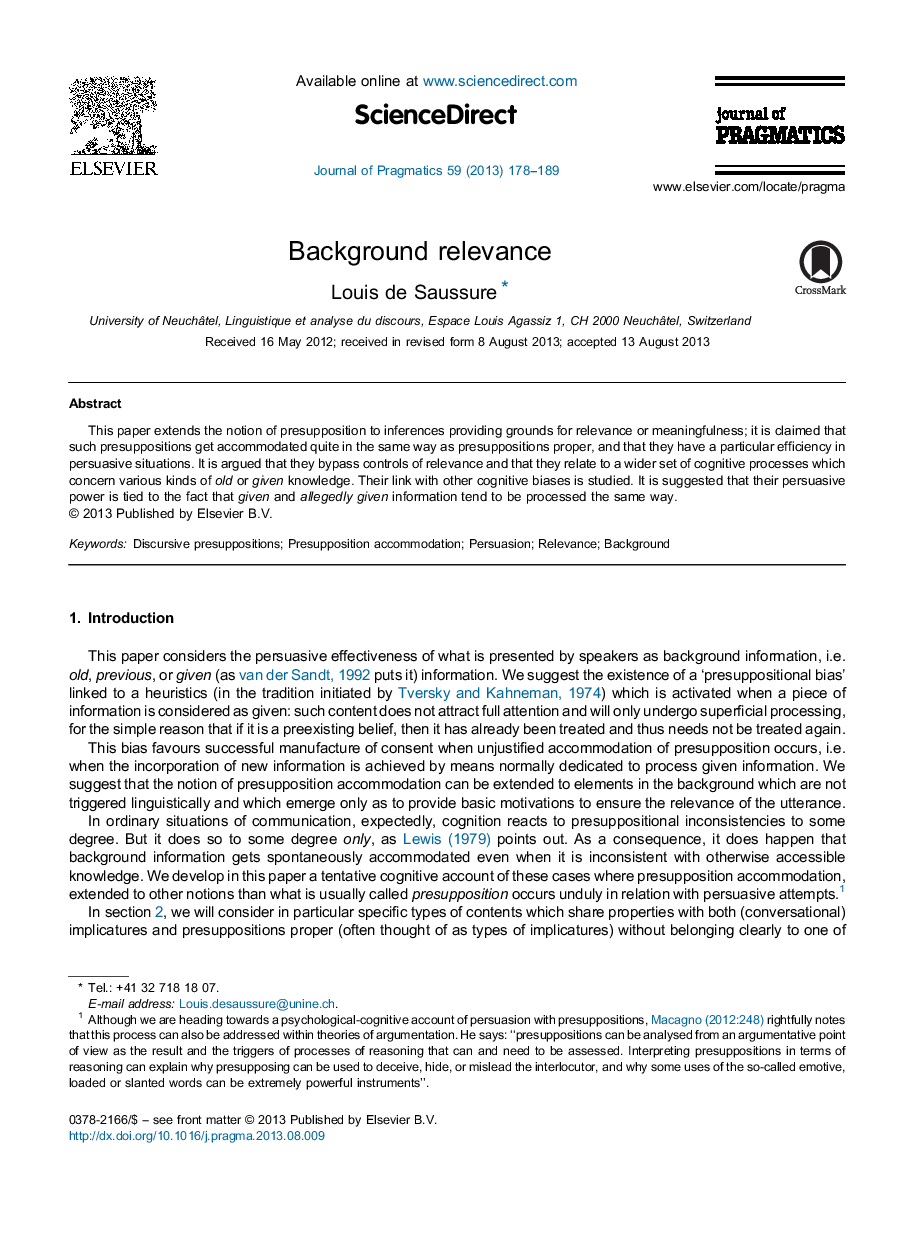| Article ID | Journal | Published Year | Pages | File Type |
|---|---|---|---|---|
| 932854 | Journal of Pragmatics | 2013 | 12 Pages |
Abstract
This paper extends the notion of presupposition to inferences providing grounds for relevance or meaningfulness; it is claimed that such presuppositions get accommodated quite in the same way as presuppositions proper, and that they have a particular efficiency in persuasive situations. It is argued that they bypass controls of relevance and that they relate to a wider set of cognitive processes which concern various kinds of old or given knowledge. Their link with other cognitive biases is studied. It is suggested that their persuasive power is tied to the fact that given and allegedly given information tend to be processed the same way.
Keywords
Related Topics
Social Sciences and Humanities
Arts and Humanities
Language and Linguistics
Authors
Louis de Saussure,
